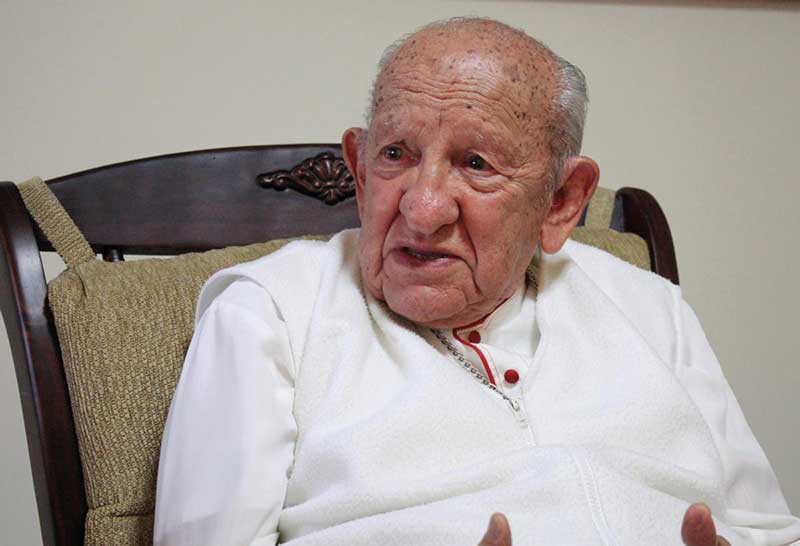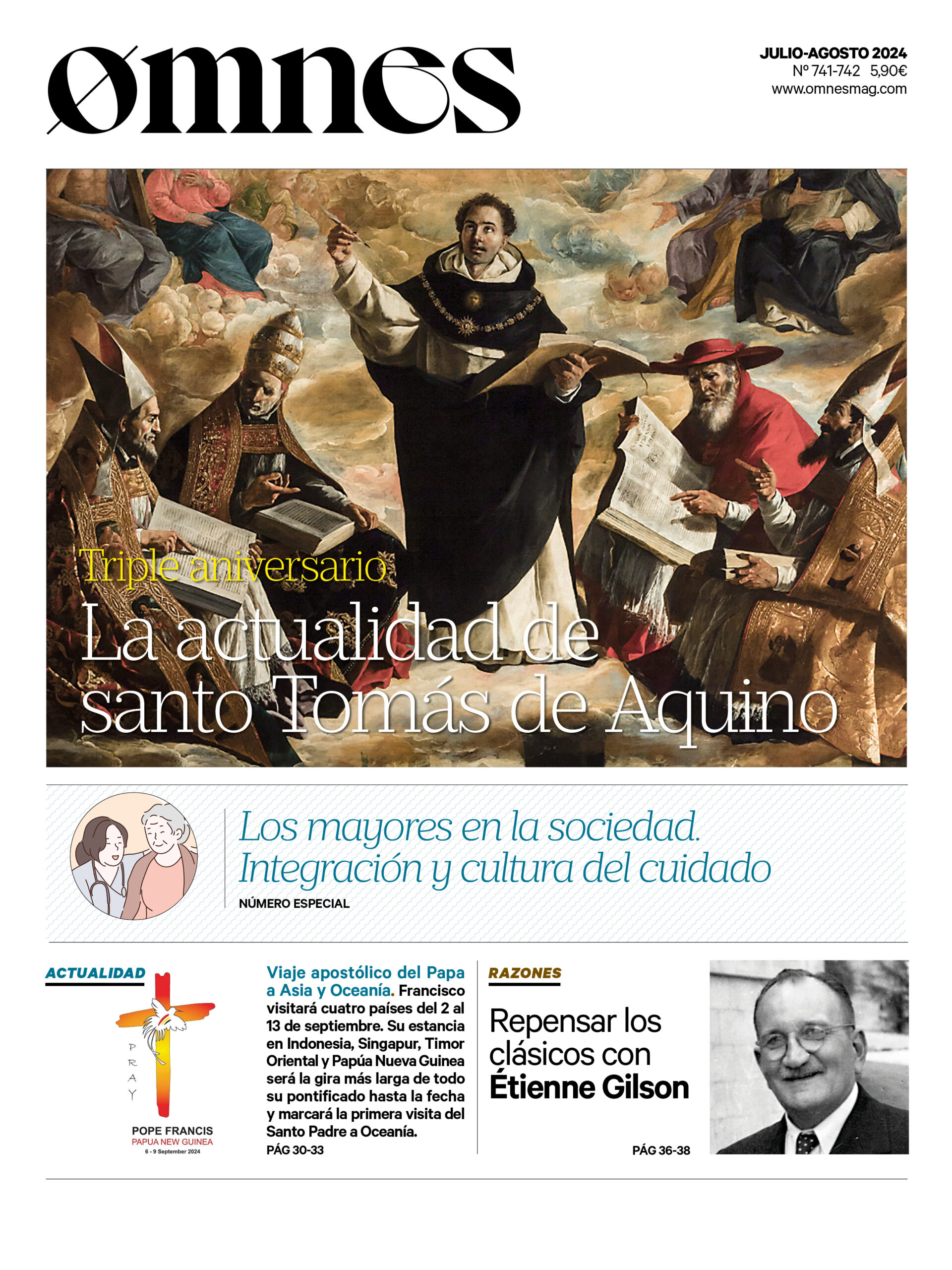We recalled some important moments in the recent history of the Church with Bishop Szymanski, who at 94 years of age has been a first-hand witness to some milestones, such as the Second Vatican Council in which he participated.
– Lourdes Angélica Ramírez, San Luis Potosi
On October 8, 1965, Pope Paul VI closed the Vatican Council IIThe meeting was attended by 2,540 bishops from all over the world. Arturo Antonio Szymanski Ramirez, 94, Archbishop Emeritus of San Luis Potosi (Mexico). He is a cultured and simple man, whose intelligent narrative is interspersed with a jovial humor that is contagious. With sympathy he reviews personal memories of those years.
You were a Council Father and met Benedict XVI and John Paul II. What can you tell us about them?
-Benedict XVI is a wise man who tried to put doctrines in order. He was a Pope who did a lot for the Church. I was amazed. He is German and had been a teacher. I met him at the Second Vatican Council. In the first session of the Council, Ratzinger was an advisor to Cardinal Josef Frings, Archbishop of Cologne. But already in the second session he was appointed the Council's theologian because they saw that he had a lot of capacity. In the Council, Cardinal Alfredo Ottaviani, who was of the Roman current, and Cardinal Frings, who was of the renovating current of the Church, were fighting. It was very interesting, because they were both half-blind, and at the Council one could see how they would fight each other in the Council hall and after the discussion, the two of them would go half-blind, holding hands, to the cafeteria where we all used to go next to St. Peter's Basilica.
At the Council I went to learn what the episcopate of the whole world thought. I was with Africans, with Chinese... The talks during meals were very enriching.
Cardinal Wyszynski, who was the primate of the Polish bishops, invited everyone with a Polish surname to lunch and he invited me, because of my surname, but I was not Polish [laughs]. And I went to the lunch, in a street near the courthouse, near the Vatican. I arrived and when it was time to go to the table, Wyszynski, who was like a prince for the Poles, sat at the head and he sat me on his right and on the other side a young bishop called "Lolek". And we were eating, talking..., in short, we became very good friends and when we finished eating the Cardinal asked me if I had brought a car. I told him: "I came in a cab." He then told "Lolek", "Take it away.". "Lolek" was Karol Wojtyła, of course. So he gave me a ride in a little Fiat and we became friends. And we tried and looked for each other and everything. He was about my age, a little older than me. I liked him because he was very approachable. Then we wrote to each other and suddenly, when the conclave to elect the successor of John Paul I, one day Cardinal Corripio, who was not a cardinal then, spoke to me and told me: "I was very friendly: "Hey, didn't you hear on the radio that Papa came out with a very strange last name, 'Woj-something'. I think he must be an African.". And I turned on the radio and heard that my friend had been elected Pope. I sent him some letters telling him that I was glad that the Pope was my friend. And when he went to Rome I wrote to him telling him that I was going and he always invited me to concelebrate, or to lunch or breakfast. Whenever I went he always invited me. The Pope was my friend, and he was my driver.
Several months have passed since Pope Francis' apostolic trip to Mexico. What is your assessment?
-The Pope is the man of the Church for this moment, and the visit is, we all realized, the visit of a Shepherd. He came as a Shepherd, he did not care if they were sheep or goats or God knows what. He spoke to everyone as members of the human family and came to do what he has often said: to live the liturgy of encounter. In order to live the liturgy of encounter, each one of us must know our personality, our temperament. With the temperament that God has given us, we should be people of good character, so we should not be quarrelsome. Knowing each one's character, we must realize that we are not equal, that we are diverse. Therefore, we must live diversity, and in diversity we must deal with those who believe and those who do not believe. With everyone. We are diverse. What do we have to do? Seek the common good, and that is the theology of encounter that the Pope came to realize now that he was in Mexico.












